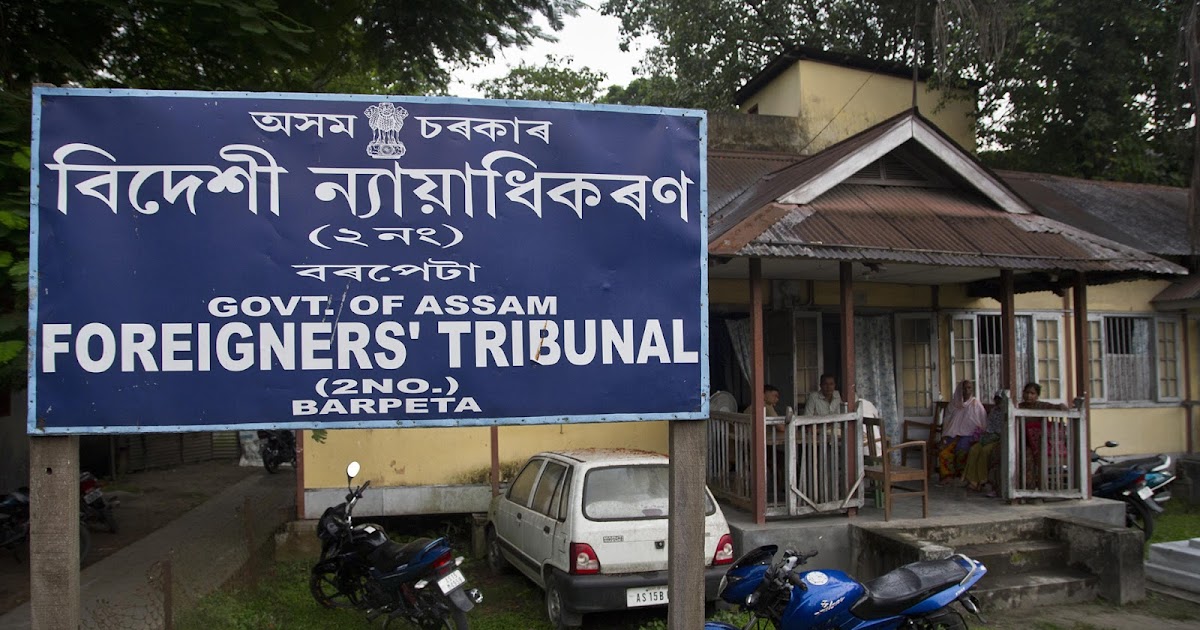
On March 3, the Gauhati High Court passed an order stating that the principle of res judicata will not apply if the order of the Tribunal has not provided a reasoned order, i.e. not provided a substantial resonating for their decision. The division bench of Justice Achintya Malla Bujor Barua and Justice Robin Phukan was hearing the case of one Rafikul Islam, who had approached the Gauhati High Court against the impugned order of Foreigners’ Tribunal, passed in 2022, which had declared him a foreigner.
As per the facts of the case, the petitioner had been declared a foreigner by the Foreigners’ Tribunal (II), Sonitpur in F.T. Case No.05/2019, by an order dated September 8, 2022. Thus, he was deemed to be a non-citizen of India who had entered the State of Assam after March 25, 1971.
Appealing against the impugned order, the petitioner had contended that there was an earlier round of proceeding against him in the same Foreigners’ Tribunal, in F.T. Case No.102/2014,in which an order had already been passed declaring the petitioner as not a foreigner. Referencing to the same, the petitioner had submitted that a subsequent proceeding before the same Tribunal was barred by the principles of res judicata.
“The principles of res judicata under the law requires two conditions precedent to be satisfied i.e., the earlier dispute must be between the same parties and secondly, the issue between the parties must be decided. The very condition that the issue must be decided requires that it must be decided by a reasoned order and not by an order merely depicting the view that the Foreigners Tribunal may have taken without any reason. From such point of view, we are unable to accept the plea of the petitioner that the subsequent proceeding against the petitioner…is barred by the principles of res judicata.”(Para 6)
Deciding on the said case, the bench noted that the opinion rendered by the Foreigners’ Tribunal in the previous round of litigation (2014) had not given any reason behind declaring the petitioner as not a foreigner.
“An unreasoned order is unacceptable in law, more so, when the said order is relied upon in a subsequent proceeding to take the plea of the subsequent proceeding being barred by the principles of res judicata,” the bench stated in its order. .”(Para 5)
However, keeping in mind the interests of justice and the petitioner, the court remanded the matter back to the Tribunal to take up the records of both cases and pass a reasoned order based on the materials that were available in the two proceedings.
The bench stated “But, however, for the interest of justice, we remand the matter back to the Foreigners’ Tribunal (Second) Sonitpur to take up the records of F.T. Case No.102/2014 as well as F.T. Case No.05/2019 and pass a reasoned order on the materials that may be available in the two proceedings.”(Para 7)
The court ordered the petitioner to file an appeal with the Tribunal on April 6 and stated that no coercive action would be taken against the petitioner until the Tribunal issues a reasoned order.
The order of the High Court can be read here.
What does the law say?
A speaking order or a reasoned order is considered as the third pillar of natural justice. When an adjudicating body provides a reason for the decision they make while hearing a case, the decision is referred to as a reasoned decision. The recording of reasons in support of the conclusions reached by the Courts in our judicial system has been recognised since the system’s inception. A litigant’s right to know the reasons for the Judges’ decisions is an essential one. Even a brief recording of reasoned opinion justifying the decision would be sufficient to pass the test of a reasoned order or judgment.
A non-speaking, unfounded, or ambiguous order passed or judgment delivered without taking into consideration the relevant facts, evidence available, and the law attracted thereto has always been considered inappropriate and judicially de-recognised by the courts. The mere use of the words or language of a provision in an order or judgment without any mention of the relevant facts and evidence has always been treated by the superior courts as an order incapable of withstanding the test of a judicially passed order.
Related:
Gauhati HC overturns FT’s order declaring a resident of Assam as Foreigner
Rescuing people from statelessness: CJP in Assam, a 2022 overview
CJP helps another hapless Muslim individual in securing bail: Gauhati HC
Floods and landslides cannot deter CJP’s Assam team
Assam man forced to prove Indian citizenship four times!
Cannot keep ‘suspected foreigners’ with ordinary criminals: Gauhati High Court
Families protest arrests as questions mount on child marriage crackdown in Assam
Crackdown on child marriage claims four lives, including three women and one child
Asia’ biggest permanent “detention camp”, Matia Transit Camp, opens in Assam